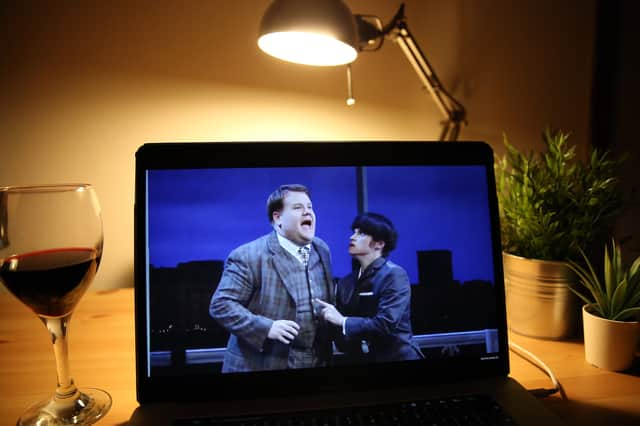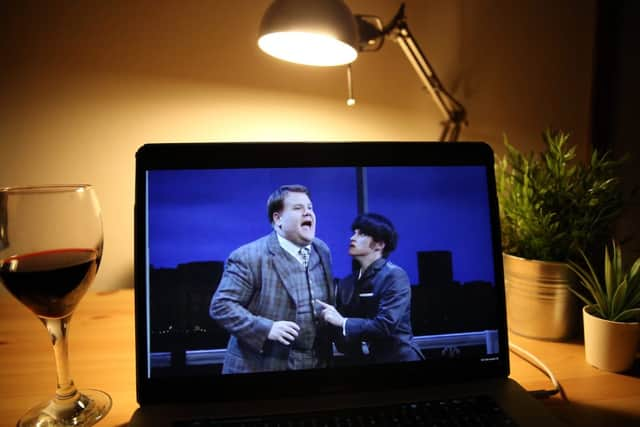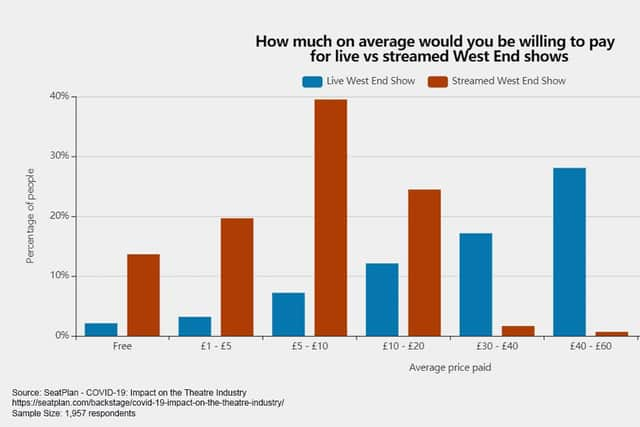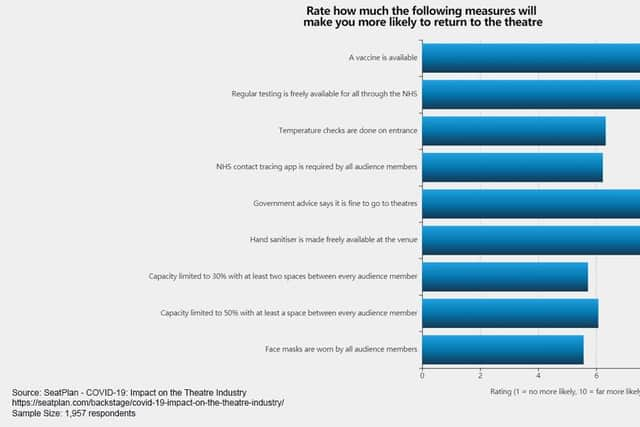Online theatre reaches new heights while fears remain for live shows


Online theatre is booming - but venues may struggle to make ends meet unless viewers are willing to donate more.
Those are among the findings of a new study conducted by ticket website Seatplan. It surveyed 1,957 regular theatregoers to get a better understanding of how their relationship with theatre has changed, what performances post-lockdown could be like and if it seems feasible that theatres can survive through alternative means.
Advertisement
Advertisement
Coronavirus has seen significant changes in the habits of regular theatregoers as they attempt to fill the void left by live performance. This is most notable in streaming, with 72 per cent of people reporting having watched a streamed theatre performance - four times as many as the period before the pandemic struck.


There has been a huge growth in people searching for online streaming services. Marquee TV, which offers recorded arts and culture for £8.99 per month, saw an increase of almost 2,000 per cent more people searching for it in than in February, while the US-based BroadwayHD saw an increase of more than 5,000 per cent more people in the UK searching for it in March compared to the previous month.
The biggest winner is the National Theatre and its NT Live series of weekly streamed production. As well as sizeableincreases in interest with more than 368,000 people searching for the service, it received a peak audience of 209,000 for its stream of One Man, Two Guvnors.


From those surveyed, 97 per cent of people said they would not pay more than £20 to watch, despite 75 per cent of people saying that they would generally pay more than £20 for a normal theatre ticket.Overall, the estimated average ticket price a person is willing to pay compared to an online stream is estimated to fall from an average of £47.61 to £8.45, a decrease of 82 per cent.
Advertisement
Advertisement
The National Theatre’s artistic director, Rufus Norris, explained in an interview to ITV that the situation was desperate and when asked how many theatres could close, said that “in a worst case situation, if there is no support, most of them”.


Theatre-goers gave their views on an array of other topics too - including when West End theatres may reopen.
Currently, performances have only been officially cancelled until the end of June 2020. But shows like Hairspray at the London Coliseum have only pushed back their openings until September 2020, while the Old Vic has put tickets on sale for its production of A Christmas Carol which opens in November.Meanwhile, Cats and Les Miserables producer Cameron Mackintosh has said he thinks theatres are “unlikely” to open this year.
This confusion is reflected by theatregoers - with September 2020 being the most chosen month for when theatres would reopen, but leaving many responses ranging anywhere as early as June, to as late as 2022.And when asked to rate on a scale from one to ten what measures would make them more likely to return to a theatre, an available vaccine, government advice and the availability of regular testing all came out on top.
See the full report at seatplan.com/backstage/covid-19-impact-on-the-theatre-industry